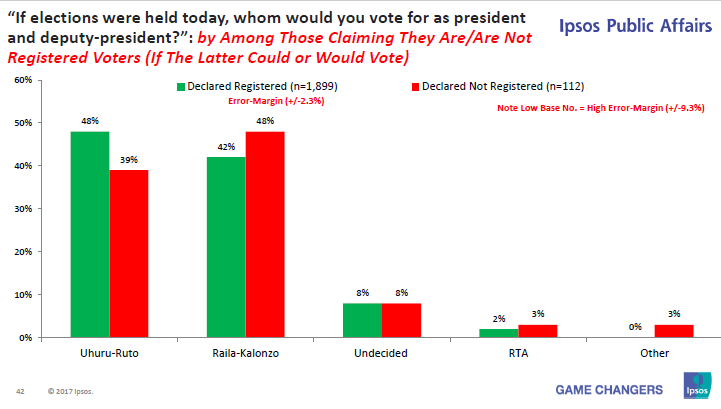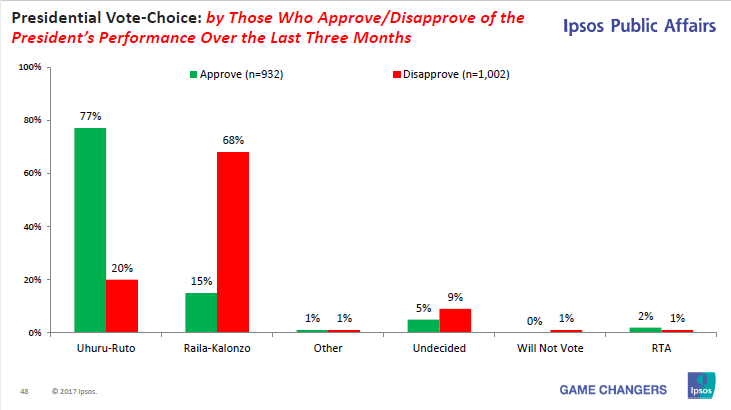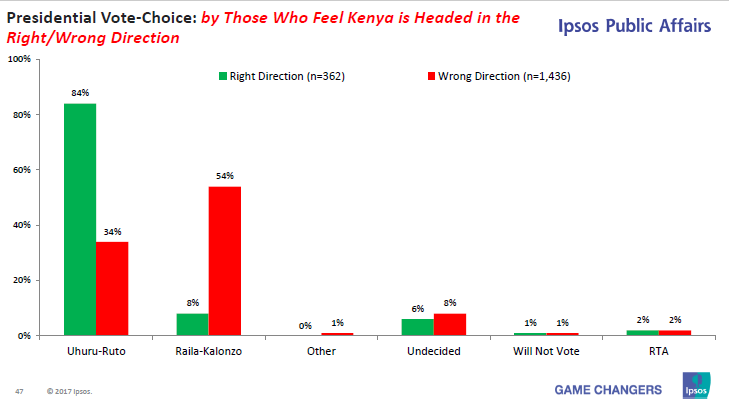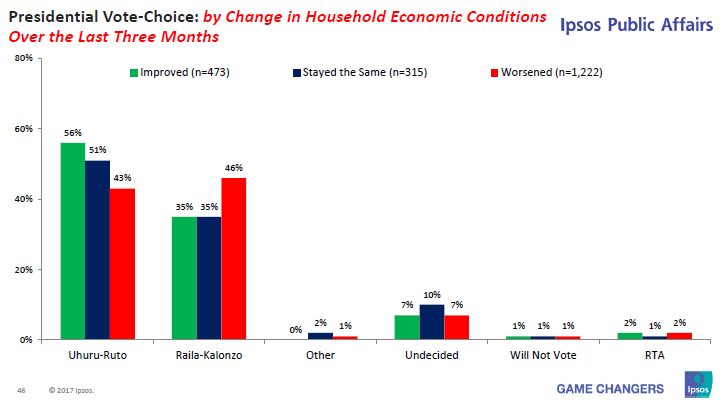
IPSOS Research Analyst Tom Wolf says 76 per cent of 2,026 respondents sampled between May 11 and 23 across the political divide thought their economic condition had worsened in a period of three months prior to the survey/COURTESY
NAIROBI, Kenya, May 31 – The status of the economy may not influence choices voters make for or against a particular candidate going by a new study released by the IPSOS Tuesday.
IPSOS Research Analyst Tom Wolf says 76 per cent of 2,026 respondents sampled between May 11 and 23 across the political divide thought their economic condition had worsened in a period of three months prior to the survey with only 7 per cent saying their condition had improved.
Asked whether “things were going towards the right direction,” 71 per cent of the sampled population indicated that the country was on the wrong path, with 18 per cent saying the nation was on the right lane.
Wolf however observed in an interview with Capital FM News on Wednesday that the proportion of people who felt their economic condition had worsened and those who thought the nation is headed the wrong way alone cannot be used to make a conclusion on voting patterns.
“Voting is not a question of approval. It is choosing between A and B or going to a restaurant where you are given a menu. You can only take a meal because your stomach is only big enough to eat one meal,” he explained.
He said voters had a tendency of placing trust on national leadership when leaders at the top come from their ethnic groups, something that he said could explain the findings of the survey that showed President Uhuru Kenyatta and his Deputy William Ruto leading in the presidential race at 48 per cent despite negative opinions about the direction the nation is headed.

IPSOS Research Analyst Tom Wolf says 76 per cent of 2,026 respondents sampled between May 11 and 23 across the political divide thought their economic condition had worsened in a period of three months prior to the survey/COURTESY
Raila Odinga and his running mate Kalonzo Musyoka, according to the poll came in the second with 42 per cent of respondents saying they would elect them.
“Many Kenyans have much more confidence or trust if the person at the top comes from their own ethic group. When we have presidential and deputy presidential candidates, far more of their fellow ethnics vote for them than they do for candidates from a different ethnic group,” Wolf noted.
“We cannot say that the answers people give to our questions can be credited or blamed entirely on the National Government and this is more now because since the last election (March 2013) we now have County Governments that have a bit of responsibility for policy areas that also affect people’s lives,” he added.
Infrastructure, according to the findings in the study which had a 95 per cent degree of confidence and a margin of error of +/- 2.18 per cent account for close to a third – 31 per cent – of people thinking the country was headed to the right direction followed by leadership (17 per cent) and education (13 per cent).
Infrastructure however score a significantly lower approval rating among those who felt the nation was not heading the right way, their focus being on the cost of living.
According to the 71 per cent of respondents saying the country was not on the right path, the cost of living polling at 68 per cent was the key reason as to why that was the case. Nine per cent attributed the situation to corruption with 8 per cent pointing an accusing finger at the leadership.
“It is not surprising that infrastructure is not a favourite among those who think the country is going to the wrong direction. Perhaps this segment of people ask themselves that it may take some time before the benefits of infrastructural developments are seen compared to the cost of living which is something they can feel and relate to every day,” Wolf said.
The sample population picked from 46 counties was selected based on a random, multi-stage stratified proportionate to population size methodology with the interviews being carried out in English, Kiswahili and Somali.
Fifty-one per cent of those interviewed were female respondents, 49 per cent being male.
The rural population accounted for sixty-three per cent of participants in the study with the remaining 37 per cent drawn from urban centres.











































